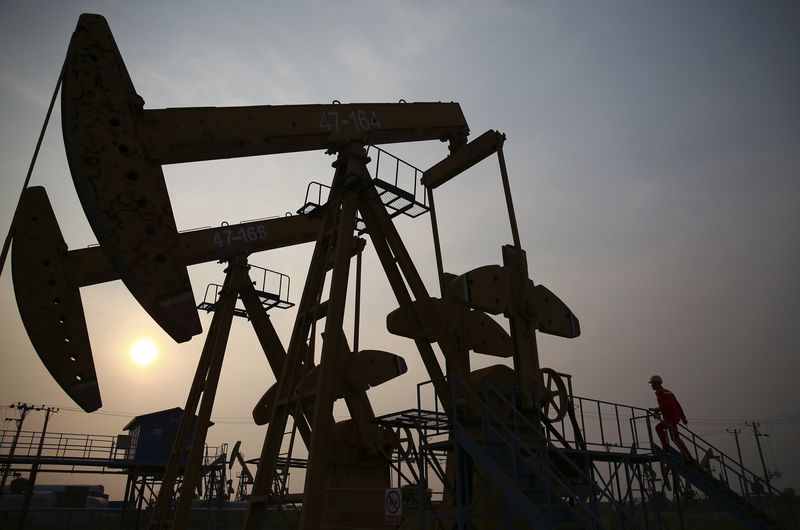By Peter Nurse
Investing.com -- Oil prices rose Friday after the release of the latest U.S. jobs data but remained on course for substantial weekly losses on continued concerns of a global recession in 2023.
By 08:55 ET (13:55 GMT), U.S. crude futures traded 1.5% higher at $74.78 a barrel, while the Brent contract rose 1.5% to $79.83 a barrel.
The monthly official jobs report showed that 223,000 jobs were created in December, more than the 200,000 expected, while the unemployment rate fell to 3.5%, a drop from the downwardly revised 3.6% the previous month.
Additionally, average hourly earnings slowed marginally - reflecting that job growth seems to be fastest in lower-paying entertainment and hospitality service functions.
These numbers suggest the labor market continues to defy the broader slowdown in the economy, raising hope that the U.S. economy can avoid a severe recession in the new year.
This added to the positive sentiment generated on Thursday by the higher than expected fall in U.S. distillate inventories last week, according to data from the Energy Information Administration released on Thursday, suggesting demand remained strong in the U.S., the largest consumer in the world.
That said, both benchmarks remain on course for weekly losses of over 7%, pressured by concern over the possibility of a global recession.
This followed comments earlier in the week from International Monetary Fund Managing Director Kristalina Georgieva, who warned that the global economy faces a tough year in 2023, with the three main drivers of economic growth - the U.S., China, and Europe - all likely to suffer from sharply slowing growth.
A lot of the attention is focused on the Chinese economy, as it battles a surge in COVID cases after an abrupt reopening of its economy late last year.
"Chinese Covid infections are a concern for demand in the immediate term, however, the medium to long-term outlook is more constructive following the change in China's covid policy," said analysts at ING, in a note.
Saudi Arabia, the world's top crude exporter, has lowered its prices for the Arab light crude it sells to Asia to its lowest since November 2021, suggesting demand from China, in particular, has yet to rebound to levels the market is more accustomed to.
"Our oil balance starts to show a tightening in the market from the second quarter through to the end of the year, which suggests that we should see stronger prices from 2Q23 onwards," added ING.
